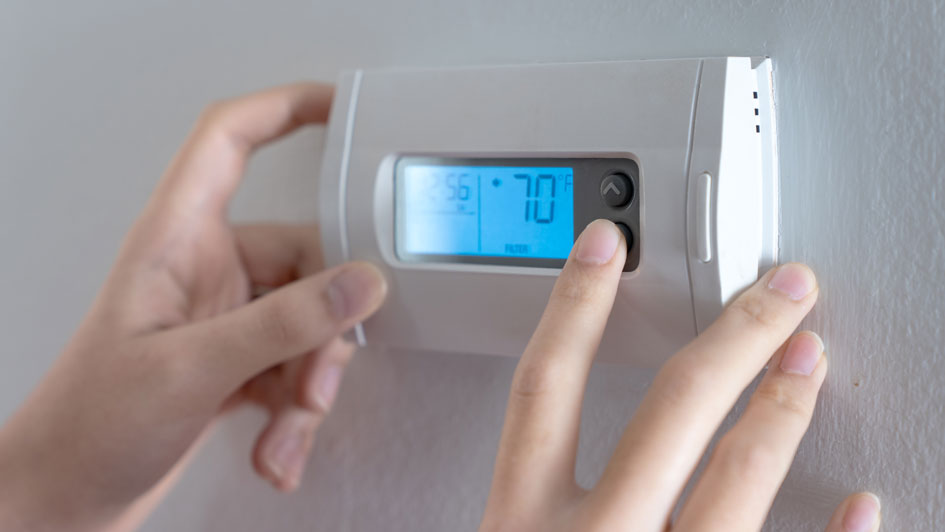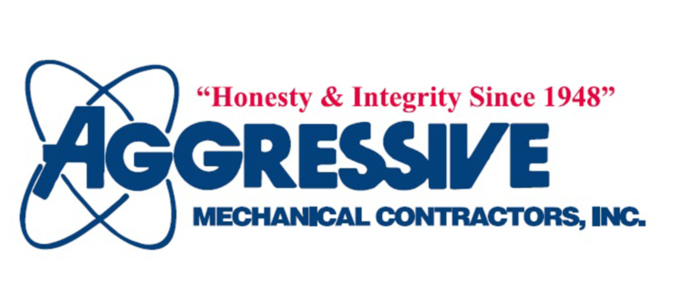
Everyone’s always looking to save money on their utility bills, but it turns out there’s a way to keep costs down, even when you're out of the house.
The secret is your thermostat. By making the most out of your thermostat, you can tailor the temperature to your needs. This means establishing various temperature settings for when you’re home, away or even when you’re asleep.
By trying a few of these schedules, you'll be able to enjoy comfortable temperatures while keeping more money in your pocket. Check out our guide on how your thermostat can save you money in the summer:
While at Home
Pretty much whenever you're home, you want a nice range of pleasant temperatures. That’s why it’s best to set your thermostat lower in the summer while you are in the house to appreciate the cool air.
But the ideal temperature for the summer is actually around 78 and 80 degrees Fahrenheit. With this adjustment, you'll avoid the worst of summer while keeping your energy bill more manageable.
While Gone
When setting the temperature for when you are out of the house in summer, it’s advantageous to set the thermostat higher than you would if you were in the house.
If your home is in a shady spot in a cooler climate, you can set the thermostat to higher temperatures like 88 degrees while no one is home before you adjust it back to the sweet spot of 78-80 degrees after you return. This way, your air conditioning system isn't working around the clock to keep an empty house cool.
While Asleep
When it comes to sleeping in the summer, you want a nice cool temperature. You should try and keep things between 68-72 degrees Fahrenheit. This will keep you from getting too hot or too cold when you are trying to get some rest.
Other Ways to Use Less Energy:
- Put in a smart thermostat: Switching to a smart thermostat in the summer can lower energy costs as it forms temperature schedules according to your lifestyle and home environment. They can lower the temperature while you are home or sleeping, while allowing it to get a little warmer when the house is empty. With reliable brands like the Lennox iComfort, you are able to adjust settings and schedules through your smartphone, tablet or laptop. Planning smart thermostat installation in your Neptune City home can be the simplest strategy for maintaining comfortable, yet energy-efficient temperatures whether you're at home or across the country.
- Replace current equipment with a newer HVAC system: Upgrading your HVAC system is another great option for long-term energy savings. If a system boasts high energy efficiency, your utility bills will be lower because it requires less energy to reach your preferred temperatures. Air conditioning installation in Neptune City is only a phone call away, so don't hesitate to reach out to local pros like Aggressive Mechanical who can set you up for success.
- Stay on top of routine AC maintenance: Hiring a skilled professional to perform regular air conditioning maintenance in Neptune City can have a significant impact on your utility bills. By regularly cleaning the coils, checking for damage and keeping vents clear of dust and debris, you may notice your HVAC system run more efficiently. More efficient operation reduces strain on the unit and lowers operational costs, lowering total energy use and eventually the total monthly bill.
- Replace your air filter regularly: A regular schedule for cleaning or replacing the HVAC system's air filter saves money by improving airflow. When filters are old and less effective, air conditioners have to work harder, and this greater strain could shorten the system’s life span and lead to breakdowns.
- Confirm your attic is sufficiently insulated: Insulation is a crucial component for any energy-efficient home, securing the hot air outside and the cool air inside through summer. The North American Insulation Manufacturers Association (NAIMA) recommends that homes in the southern United States should have at least 13-14 inches of insulation, while states further north need 16-18 inches.
- Review your ventilation: A leak in the air ducts could increase your energy bills much more than 20 percent, plus it can potentially allow harmful emissions from your water heater, clothes dryer and other appliances to get into the atmosphere of your home. Checking your ductwork for leaks and sealing them can help with both these issues.
- Seal all other leaky spots in your home: Sealing leaky spots in your home with caulk, foam sealant or weather-stripping can help keep it cooler on hot summer days. You should also check for any gaps around windows, doors and even outdoor fixtures. Devoting time and effort to sealing leaks now can help you save a lot over time.
